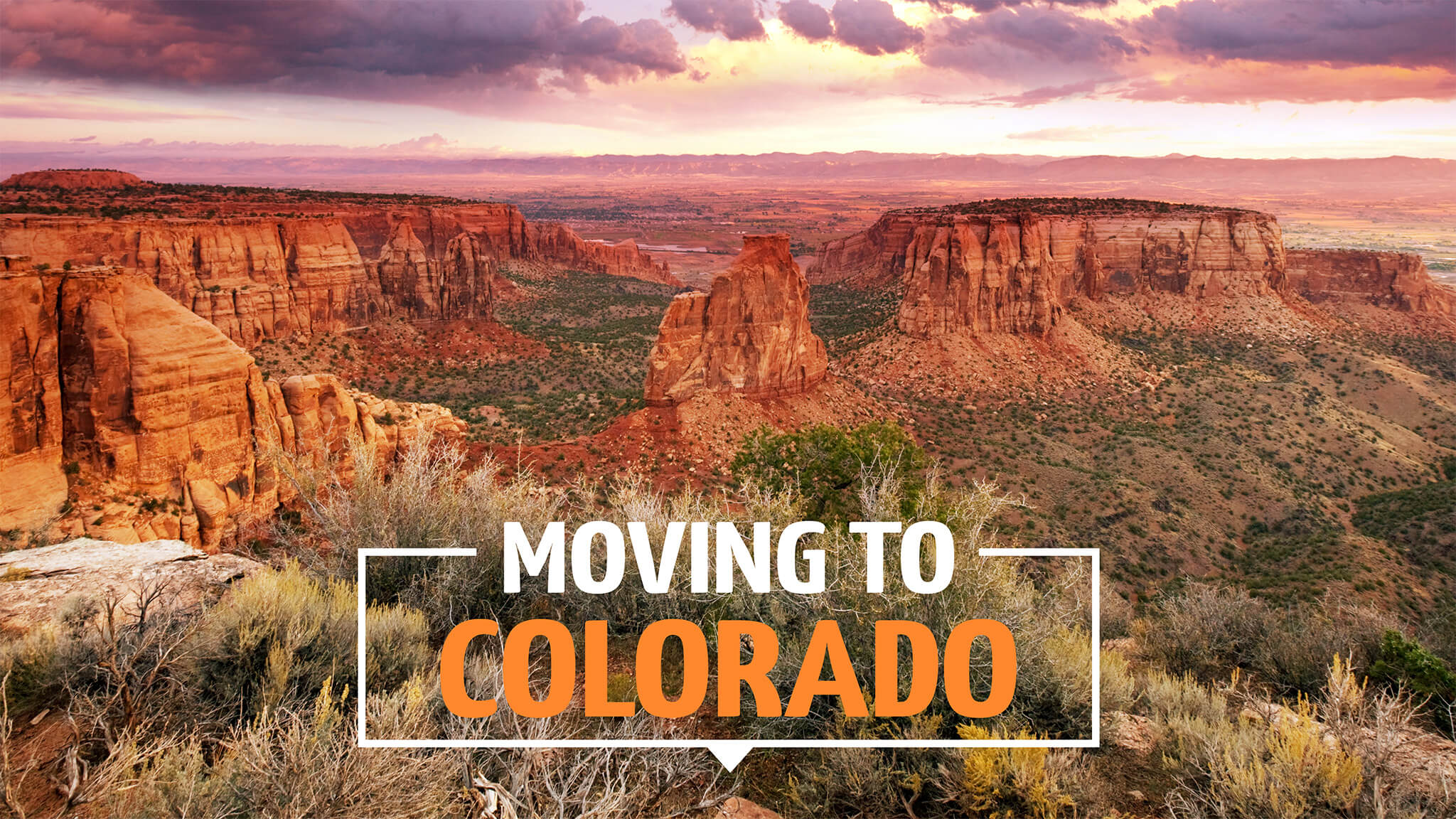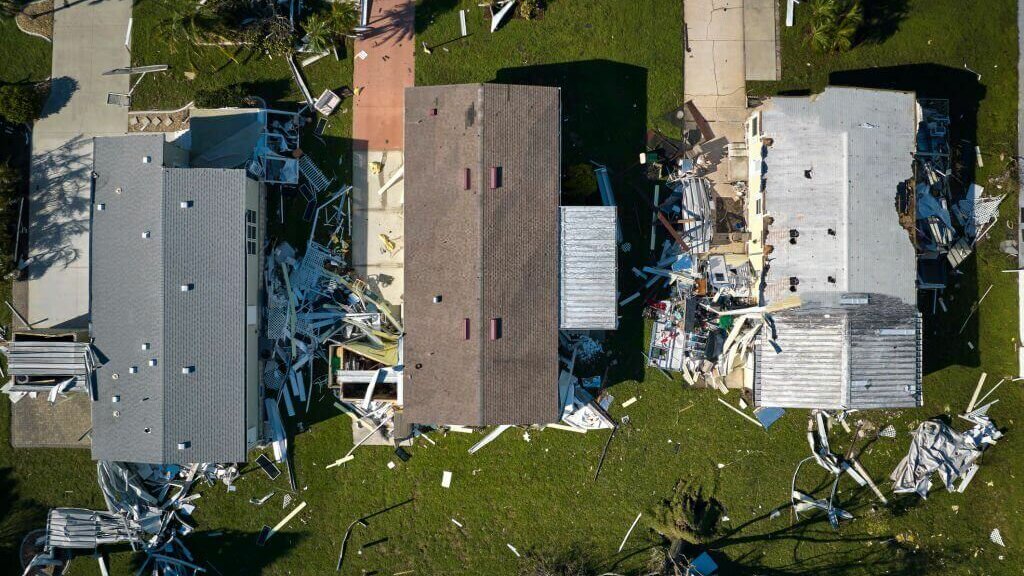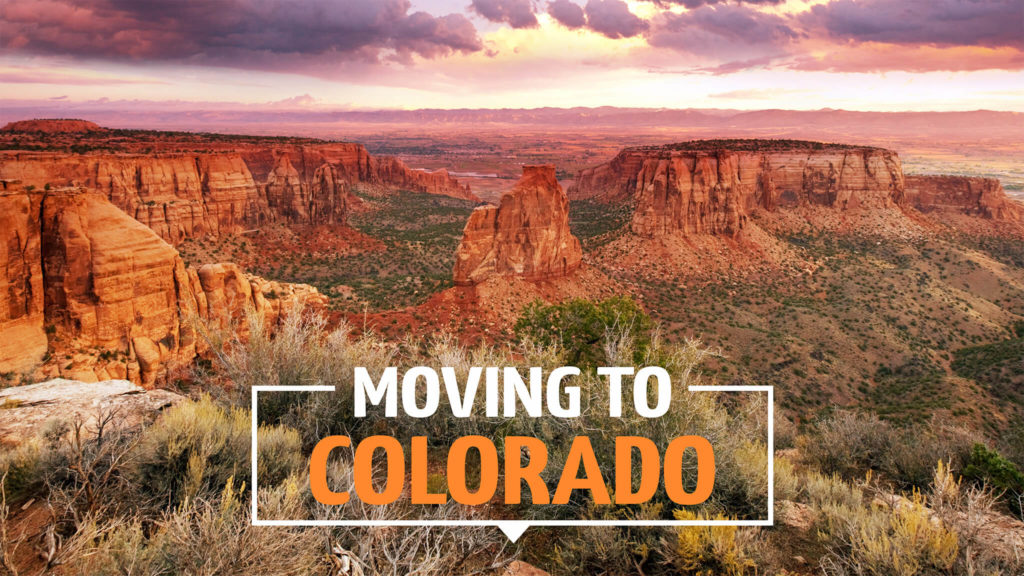If you are ready to be a Coloradan, then we are here to share our expert knowledge about living in Colorado with you. Filled to the brim with extremely scenic areas which offer the chance to explore nature at its finest, Colorado is often one of the most sought-after places in the United States.
If you are deciding to move to Colorado, there are certain amazing things we know that you must also be aware of. There are a plethora of choices available to anyone thinking about relocating to Colorado. Weed culture is just one of the peculiar quirks you will find about living in Colorado.

Ranked pretty decently for educational opportunities and having a diverse set of business organizations in numerous sectors are another advantage Colorado offers to anyone moving to Colorado.
If you are one of those people that crave a sunny climate almost throughout the year and want to enjoy popular cuisines offered by Colorado, then dive into our in-depth analysis on moving to Colorado.
[elementor-template id=”13252″]
How many people are moving to Colorado?
Colorado has experienced a population boom for many years, and this recent growth is not uncommon. In 2020, Colorado is expected to have a population of 5.8 million. With many people moving to and away from Colorado during the pandemic, Colorado ranks high among moving states
Similar to this research, another study looked at how people were changing their LinkedIn profiles in the cities and towns experiencing the greatest growth. Data from that set shows Denver has experienced the 8th largest growth across the nation, with 1.34 people moving in for every person leaving.
Californians moving to Colorado
Colorado’s beautiful scenery and affordability attracted almost 240,000 newcomers in 2018, according to a new report. More than 28,000 of those newcomers were from California. With moving costs starting at $4,000 per move, the California – Colorado migration route is one of the most expensive in the country, according to the Storagecafé data.
1. Cost of living in Colorado
According to worldpopulationreview, Colorado’s cost of living index is 105.6. It is comparatively higher than the united states index average of 100. Across the United States as a whole, Colorado is about as expensive as it is in Colorado. Colorado is only 1.9% more expensive than the national average, according to Bureau of Economic Analysis data.

Colorado ranks 13th in the nation for cost of living compared with all other states. In general, more urban, dense metropolises cost more to live in than more rural areas. There are seven metropolitan areas in Colorado.
In Colorado, the metro area of Boulder tops the list for the most expensive homes, as the cost there is 7.1% above the national average and 5.2% above the statewide average.
| Colorado | US | |
| Median Home Value | $313,600.00 | $204,900.00 |
| Median Monthly Rent | $1,196.00 | $1,023.00 |
| Average Car Insurance | $1,741.00 | $1,517.00 |
| Healthcare cost for Single Adult | $4,081.00 | $4,266.00 |
| Healthcare cost for family of four | $12,398.00 | $12,950.00 |
| Food cost for Single Adult | $3,332.00 | $3,240.00 |
| Food cost for family of four | $9,624.00 | $9,354.00 |
| Annual Child care cost | $11,280.00 | $8,903.00 |
| Annual Taxes | $7,011.00 | $6,542.00 |
2. Job market in Colorado
Employment is a common reason for relocating to Colorado, whether you just finished college or have found a new career opportunity. Colorado has one of the most competitive and most steady job markets in the country, according to The Denver Post.

In Colorado, the average household income is $92,520 While the median household income is $68,811. The most wanted job in Colorado is Interpreter and translator With an Average annual salary of $70,050.
According to the U.S. Bureau of Labor Statistics reports, Colorado’s current unemployment rate in February 2021 was 6.6 %, which is higher than the 6.2% average Unemployment Rate in the United States. It is 5.6x more common for a worker in Colorado to be a Mining Engineer than all U.S. workers.
The Most Common Jobs in Colorado
| Rank | Job | Local Jobs | Mean Local Salary | Local Popularity Index |
| 1 | Retail salespersons | 68,610 | $24,901 | 1.1 |
| 2 | Office clerks, general | 48,080 | $24,962 | 1.1 |
| 3 | Cashiers | 42,130 | $19,000 | 0.9 |
| 4 | Waiters and waitresses | 38,040 | $15,551 | 1.2 |
| 5 | Combined food preparation and serving workers, including fast food | 37,900 | $15,421 | 1.2 |
| 6 | Customer service representatives | 33,950 | $27,867 | 1.1 |
| 7 | General and operations managers | 30,200 | $88,711 | 1.2 |
| 8 | Janitors and cleaners, except maids and housekeeping cleaners | 28,550 | $21,404 | 0.9 |
| 9 | Registered nurses | 28,460 | $54,673 | 0.9 |
| 10 | Sales representatives, wholesale and manufacturing, except technical and scientific products | 27,360 | $52,460 | 1.3 |
Highest paying jobs in Colorado
| Rank | Job Description | Average Salary | Entry Level Salary | # of Employees |
| 1 | Family Medicine Physicians | $196,770 | $60,570 | 2,510 |
| 2 | Chief Executives | $184,320 | $88,580 | 570 |
| 3 | General Internal Medicine Physicians | $182,670 | $102,460 | 550 |
| 4 | Airline Pilots, Copilots, and Flight Engineers | $182,150 | $55,470 | 3,660 |
| 5 | Nurse Anesthetists | $177,530 | $134,000 | 430 |
| 6 | Other Specialists Dentists | $174,820 | $108,410 | 70 |
| 7 | Marketing Managers | $167,340 | $92,760 | 3,800 |
| 8 | Architectural and Engineering Managers | $166,110 | $117,300 | 3,400 |
| 9 | Judges, Magistrate Judges, and Magistrates | $162,780 | $139,220 | 580 |
| 10 | Computer and Information Systems Managers | $158,980 | $101,950 | 7,920 |
[elementor-template id=”13242″]
Largest employer in Colorado
| # | Employer | City | Number of Employees |
| 1 | University of Colorado-Boulder | Boulder | 13,300 |
| 2 | Lockheed Martin Space Systems | Littleton | 10,000 |
| 3 | Western Union Co | Denver | 6,000 |
| 4 | Denver Health | Denver | 5,418 |
| 5 | Children’s Hospital Colorado | Aurora | 5,025 |
| 6 | Century Link | Broomfield | 5,000 |
| 7 | UCHealth-University of CO Hosp | Aurora | 4,911 |
| 8 | Schriever Air Force Base | Colorado Springs | 4,800 |
| 9 | University of Boulder | Boulder | 4,500 |
| 10 | UCHealth Memorial Hosp North | Colorado Springs | 4,200 |
3. Tax rates in Colorado
Despite its 4.63% flat income tax and one of the country’s highest sales taxes with just 2.90%, the actual combined sales tax rates in the Centennial State can exceed 11.20%. Considered these local taxes, Colorado’s average sales tax rate totals 7.65%.

Colorado income Tax:
Colorado State has a flat income tax rate of 4.55% applicable to dividends and interest income.
Colorado Sales Tax:
Colorado State is ranked 45th nationwide. In Colorado, the state sales tax is 2.90% and the average local tax rate is 4.75%.
Colorado Property Tax:
According to the U.S. Census Bureau, Colorado state’s median property tax is $1,489 with an effective property tax rate of 0.53%.
Colorado Gas Taxes:
Colorado state has $0.2325/gallon gasoline tax and $0.20625/gallon diesel tax.
Colorado Cigarettes Tax:
Colorado State ranks 24th out of 50 states in the cigarette tax. In Colorado, the cigarette tax per pack of 20 is $1.94.
4. Economy in Colorado
Colorado is ranked 18th for its economic outlook and 4th for economic performance rank. (Of all states in the US) Colorado is the 12th most exposed economically to COVID-19. The population of the state of Colorado is 5,758,736 and has grown at 1.5% per year over the last five years to 2019. It is ranked 7th out of all the United States states.

Colorado has experienced impressive economic growth in the last few years. GDP (gross domestic product) has steadily increased. As a result, Colorado’s economy is experiencing an upward trend in its goods and services produced.
Colorado’s GSP growth ranks 5th out of all 50 states. The Gross State Product of Colorado (GSP) increased by 3.6% between 2010 and 2019 reaching $353.1bn.
5. Education in Colorado
According to U.S. News, Colorado is ranked 5th overall in the United States education system, 5th for higher education and 7th for Pre-K-12. Colorado is ranked 17th for quality of education in public schools among all 50 states by WalletHub.

Colorado schools spend $10,202 per pupil for a total of $9.1 billion annually. That’s the equivalent of 2.9% of taxpayer income. 66,530 college students graduate annually in Colorado. The cost of the average community college in Colorado is $3,750 for In-state tuition and $10,670 for out-of-state tuition.
In Colorado, public university costs $22,523 which is more than the national average of $21,216.
| Rank | 19 |
| State | Colorado |
| In-State Total | $22,523 |
| In-State Tuition & Fees | $9,676 |
| Room & Board | $12,846 |
| Out-Of-State Tuition & Fees | $31,044 |
Top 10 Colleges in Colorado
| Rank | School | Location |
| 1 | Colorado College | Colorado Springs, CO |
| 2 | Colorado School of Mines | Golden, CO |
| 3 | CSU Global | Greenwood Village, CO |
| 4 | University of Colorado Boulder | Boulder, CO |
| 5 | Colorado State University-Fort Collins | Fort Collins, CO |
| 6 | University of Denver | Denver, CO |
| 7 | University of Colorado Denver/Anschutz Medical Campus | Denver, CO |
| 8 | Metropolitan State University of Denver | Denver, CO |
| 9 | Regis University | Denver, CO |
| 10 | University of Northern Colorado | Greeley, CO |
6. Healthcare in Colorado
Colorado is above the national average when it comes to healthcare costs. According to the Health Care Costs Institute data, in the Fort Collins metro area, you will pay 18% more than the median average. In Denver, it’s 13% more, and in Boulder, it’s 6% more.
If we look at average employee contributions to their insurance coverage, things are a little better. Approximately $1,375 was contributed to health insurance by Colorado employees in 2017, which is $40 below the national average. Colorado culture places a high value on fitness. It’s a great state to make your fitness dreams a reality.

Since being active is so revered, there is no shortage of ways to get fit. Whether you’re into hiking, yoga, or something else entirely, you’ll find it in Colorado. In a state like Colorado, finding the right work-life balance is no problem. In addition to the beautiful scenery, there are so many ways for you to lead an active, healthy lifestyle.
Top Colorado hospitals:
- UCHealth University of Colorado Hospital
- Porter Adventist Hospital
- Penrose- St. Francis Health Services
- Sky Ridge Medical Center
- St. Mary’s Hospital and Medical Center
[elementor-template id=”13257″]
7. House prices in Colorado
In the United States, Colorado’s median home value is the fifth highest. Denver, where the population has been booming for decades, is a beautiful place to live. Still, with the booming population, there is also a shortage of affordable housing.

In Colorado, the housing market has continued to grow steadily. This is mainly due to a strong economy across the state, as well as a strong appeal to outsiders to move to the Centennial State; Colorado continues to rank as one of the top places to live in the country. For example, Denver recently took No. 13 in the 40 Best Cities to Live for a Healthy Work-Life Balance.
Cheapest Places to Live in Colorado
- Lamar
- Milliken
- Pueblo
- Fruita
- Grand Junction
- Trinidad
- Cañon City
- Sterling
- Colorado Springs
- Brush
Most Expensive Cities To Live In Colorado
- Boulder
- Castle Pines
- Vail
- Lone Tree
- Aspen
- Cherry Hills Village
- Carbondale
- Edgewater
- Parker
- Golden
Rent in Colorado may be $130 more per month than it is in your home state based on Apartment List’s data for 2019. This is the “average”, so keep in mind the specific area in which you’re shopping may have a lot more flexibility than the overall average.
In Denver, the median house price is $465,466. There is a median home value of $444,722 in the Denver-Aurora-Lakewood metropolitan area. Denver Metro Association of Realtors® reports that prices for residential real estate have reached record highs twice this year, exceeding half a million dollars.
You will spend on average $871 per month for a studio apartment in Denver and $1,064 for a one-bedroom apartment. In Boulder, a one-bedroom apartment costs $1,158 per month and a studio costs $1,017 per month.
8. Transportation in Colorado
Colorado is a popular destination for vacationers and residents alike, whether they are full-time residents or part-time visitors. Knowing the best time to visit Colorado depends on the specific activities you have planned in Colorado. There’s great transportation to match that demand, ensuring everyone gets to where they need to go. Denver International Airport is the main gateway to Colorado for tourists.
The state can be taken on in various ways from here. If you wish, you can rent a car, travel by train or shuttle into downtown or fly to a regional airport in Colorado from downtown. You can easily stay there after moving without ever renting a car or having to step foot inside a grocery store. Every state has its own traffic problems.

However, residents in Colorado spend approximately 83 hours annually in heavy traffic. And this congestion does not just result in lost time but lost money too with approximately $1,152 annually.
Colorado has some of the most stunning mountains you will ever see. Despite being a little old-fashioned, there is one method of traveling you should not overlook. Train rides are one of the best things to do after relocating to Colorado.
Best Train Rides in Colorado
- Georgetown Loop
- Winter Park Express Ski Train
- California Zephyr
- Cumbres and Toltec Scenic Railroad
- Cripple Creek and Victor Narrow Gauge
9. Moving to Colorado DMV
It’s important to understand what you need to do to obtain a DMV license in order to move to, from, or within the state of Colorado. Colorado DMV Change of Address forms are required for all residents before they can settle in as residents – this also pertains to the address on their driver’s license and their vehicle registration, if applicable.

When you’re moving to a new state or are applying for jobs, it’s best to complete all of your paperwork soon. Due to Colorado’s 30-day wait requirement for change of address paperwork, you don’t have much time to waste.
For your convenience, we have simplified the entire process. If you’re an out-of-state driver, here’s what you’ll need to do:
- Step 1: Book an appointment
- Step 2: Take the written exam
- Step 3: Have your eyes examined
- Step 4: Pay applicable fee after passing the written test
- Step 5: Schedule and pass a driving test
10. Weather and Climate in Colorado
Colorado State is consists of distinct climate types such as tundra, subarctic, continental, humid subtropical, and semi-arid in the eastern half of the state, and cold desert in the western half of the state. Much like when we lived in Texas, the weather in Colorado can change in an instant.

One day it can be hot and you’ll be wearing shorts, while the next day’s forecast will have hints of snow and you’ll need multiple layers of clothing. The seasons between fall and winter in Colorado can change quickly so always watch the weather closely. And keep an extra jacket or pair of boots in your car at all times.
Winter in the Plains is extreme with low temperatures in the -10°F (-23.3°C) to 25°F (-3.9°C) range while summer in the Front Range is hot with temperatures regularly crossing 95°F (35°C).
11. Natural disasters in colorado
During late spring and summer, the state is susceptible to wildfires, thunderstorms, and tornadoes. The Eastern Plains are prone to strong hailstorms and have an unusually high rain rate. In spring and summer, the plains also suffer flooding due to thunderstorms and melting snow, as they are in Tornado Alley.

Summers are particularly dry in California, contributing to the frequency of severe wildfires. In 2002, the Hayman Fire was the most destructive fire on record in the United States.
[elementor-template id=”13247″]
Pros and Cons of Moving to Colorado
Pros
- Lovely Weather
There is a famous saying in Colorado that – “If you don’t like the weather now, wait for 15 minutes and it will change”. The days of sunshine come around more often in Colorado with lower humidity levels.
- Hub of outdoor sports
The state of Colorado is a hub of outdoor adventures. Summers are dominated by rock climbing, skydiving, river tubing, and paintball while winters are most preferred for enjoying ice climbing, snowmobiling, snowshoeing, etc.
- Lower tax rate
Colorado has relatively lower property and income tax rates which makes it a better choice to live in.
- Outstanding medical care
The quality of medical care in Colorado is generally higher as compared to other states. This state is one of the top 10 medical care providers in the country and ranks third for overall well-being.
- Least Unemployment Rate
The unemployment rate in Colorado is around 6.5%, way lower than the national average. The median household income in this state is nearly $59,448.
- Iconic Views
Colorado is known for its picture-perfect natural beauty and you will get the chance to witness sky-high mountains virtually every day. It is full of lakes and rivers where you can leisure strolls.
Cons
- The cost of living is higher
The average cost of living in Colorado is 21% more than the national average which exactly makes it one of the expensive states in the US.
- Traffic in Colorado is bad
The rush-hour traffic is something you need to manage if you actually want to live in Colorado. However, you can save time while driving during off-hours.
- Expensive real estate
The median home value in Colorado is about $384,000 which is much higher than in other states in the country.
- The high influx of population
Colorado is one of the growing states in the United States and hence, it attracts a huge influx of newcomers.
- Discrimination exists in Colorado
The people in Colorado are not welcoming, especially for the new residents. Locals in this state prefer to work with others who belong to the same background.
- Limited Public Transportation
There is a lack of adequate public transportation in Colorado which gives rise to traffic congestion.
Is moving to Colorado worth it?
Due to its appealing nature, the state is already attractive to many people who live there. Colorado’s growth has changed the state’s status from a “hidden gem” to a coveted location for those seeking a better life with new surroundings.
It is undeniable that Colorado residents live healthy lives: their vistas are breathtaking, and there are lots of outdoor sports to participate in. Those who choose to move to Colorado can look forward to a bright future thanks to a growing economy and job growth.
State priorities, such as education and healthcare, resulting in more educated and healthier citizens.
This depends on how much you are able to spend on the property. Relocating to Colorado could be the best decision you have ever made if you are able to look beyond traffic, property costs, and natural disaster risks.
[elementor-template id=”11713″]
